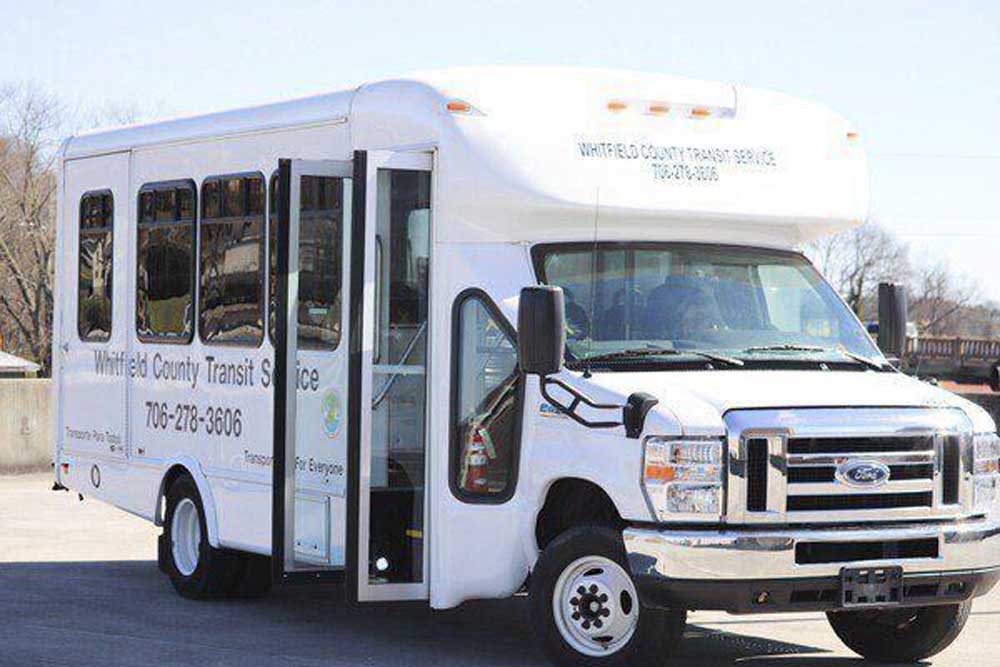Change in Whitfield County transit funding won’t affect riders
Published 8:00 am Sunday, October 1, 2023

- The Whitfield County Transit Service operates seven buses and makes about 30,000 trips each year.
Whitfield County officials say those who use the county’s transit system won’t notice much change as the federal government switches it from a rural funding program to an urban funding program.
“Essentially, these funds will replace one another,” said Jake Bearden, coordinator of the Greater Dalton Metropolitan Planning Organization, which handles transportation planning for the Dalton metropolitan area, which also includes Murray County and part of Catoosa County.
Trending
“It won’t change the way our routes are run,” said Bearden, who is the point man for Whitfield County on the transition to urban from rural funding. “It won’t change anything about our transit system, just where the funds are pulled from.”
The transit system operates by reservations, with riders calling 24 hours in advance for a ride. The cost of a trip is $4 each way. The transit service operates seven buses and makes about 30,000 trips a year.
Even though the Dalton metropolitan area includes Murray County and part of Catoosa County, Bearden said the changes won’t affect their transit funding, which is separate from Whitfield County.
“Our county transit service is beginning the shift from rural to urban funding,” said Whitfield County Administrator Robert Sivick. “That’s a result of the fact the U.S. Census Bureau no longer considers, and hasn’t I think for 20 years, Whitfield County to be a rural county but actually an urban or suburban county. Additionally, our urbanized area has been expanding steadily as additional real estate development takes place.”
Bearden said the urbanized area of Whitfield County is the city of Dalton and “about four square miles around the perimeter of the city of Dalton.”
“The Federal Transit Administration has done an audit on most transportation agencies in the state of Georgia to see where the funds are being allocated, and the majority of our trips either originate or end within that urbanized area,” he said. “Because of that they have told us we have to change from the 5311 rural program to the 5307 urban program.”
Trending
Bearden said doctors’ offices, nursing homes, most government offices and much of the county’s shopping is in that urbanized area.
“The urbanized area has gotten more dense as more development has taken place,” Bearden said. “That’s why the federal government is making this change. Outside the urbanized area, Whitfield County remains rural.”
Bearden said the change can benefit the county financially.
Currently, maintenance costs for the transit system are split evenly between the federal government and the county. But under urban funding, the federal government will cover 80% of transportation costs. He also said the urban funding program will cover a greater share of costs of trips that begin and end in he urbanized area.
Bearden gave credit to Transit Service Director Diane Franklin.
“She’s been working with our congressional delegation, GDOT (the Georgia Department of Transportation) and others to make this transition go smoothly,” he said.
Bearden said as the county continues to grow there could be further changes to the transit system.
“When the urban area hits about 200,000 population, we will begin to look at fixed routes,” he said. “But for right now, we’ll continue to operate by the reservation system.”






